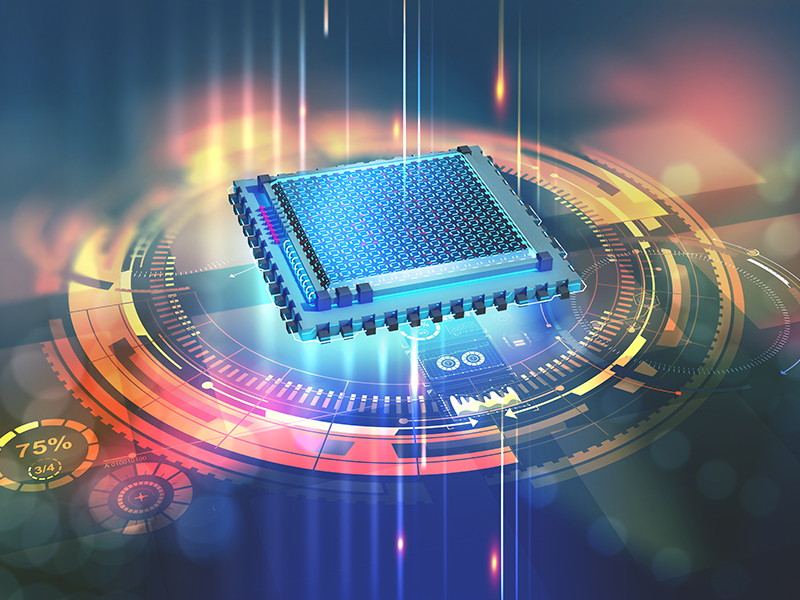If you’ve been following numerous media stories over the last few years, you already know that quantum computing promises to be the next big thing in computing and is under feverish development by countries and companies across the globe. While the promises may hold true, the reality is that today’s computers and algorithms are pretty powerful, and that reaching the point where quantum computers and their algorithms transcend them in some societally or commercially meaningful application is likely still years away.
This is because there is still a major difficulty: quantum computers are prone to errors. Qubits—the indivisible “bits” of quantum information within a quantum computer—exhibit quantum properties like coherent superposition and special connections with other qubits called entanglement. But they also have an Achille’s heel, a vulnerability to noise of various kinds that weakens their “quantumness”, fading the quantum information being processed and leading to computational errors.
Fortunately, qubits can be organized into computational units called logical qubits (LQs) that work to preserve quantum information and coherence by detecting errors within their boundaries, identifying corrections, and conducting repairs, all while maintaining fault or error tolerance. In a sense, LQs supplant qubits, becoming the bits we use to execute the “logic” (hence the name) of our quantum computation. Theoretical and experimental advances in quantum error correction (QEC) have led to several demonstrations of fault-tolerant (FT) logical qubits in recent years across different hardware platforms.
However, for universal, fault-tolerant quantum computing (UFTQC) to work, LQs need to be able to interact. More specifically, separate LQs need to become entangled on command, all while sustaining coherence and the protections of fault tolerance.
This is where the Intelligence Advanced Research Projects Activity’s (IARPA) program, Entangled Logical Qubits (ELQ), comes into play. ELQ is a four-year foundational research program directed at generating high-fidelity entanglement between LQs, and utilizing it to achieve logical state teleportation (moving information from one LQ to another) with high success. These accomplishments will lay the cornerstone for realizing the full potential of quantum computing and make a profound advance on the path to UFTQC.
“These are still early days for quantum computing, and UFTQC in particular,” said ELQ Program Manager, Dr. Michael Di Rosa. “ELQ has its sights on the next mountain pass UFTQC must reach. Arriving there will be exhilarating, but will also provide us a clear view of the next objective.”
Generally speaking, ELQ represents a critical step toward a future where quantum computers are used to solve sophisticated problems that no regular computer ever could. Chemistry and chemical engineering, biology and pharmaceuticals, complex optimization problems—these areas and more are among those that quantum computing could revolutionize.
“The challenges facing ELQ—including development of hardware, software, QEC protocols, and benchmarking protocols—are considerable,” Dr. Di Rosa said. “Successful performer teams will need to be interdisciplinary, adept at working at the interfaces between disciplines, and capable of executing ground-breaking results.”
The selection of ELQ performers was finalized recently to four teams, led by ETH-Zurich, Harvard, University of Innsbruck, and University of Sydney. Other participants are government teams from the Air Force Research Laboratory, Johns Hopkins University Applied Physics Laboratory, Massachusetts Institute of Technology Lincoln Laboratory, National Institute of Standards and Technology, and Sandia National Laboratories.
ELQ’s formal kickoff meeting is scheduled for January 23–25, 2024.

